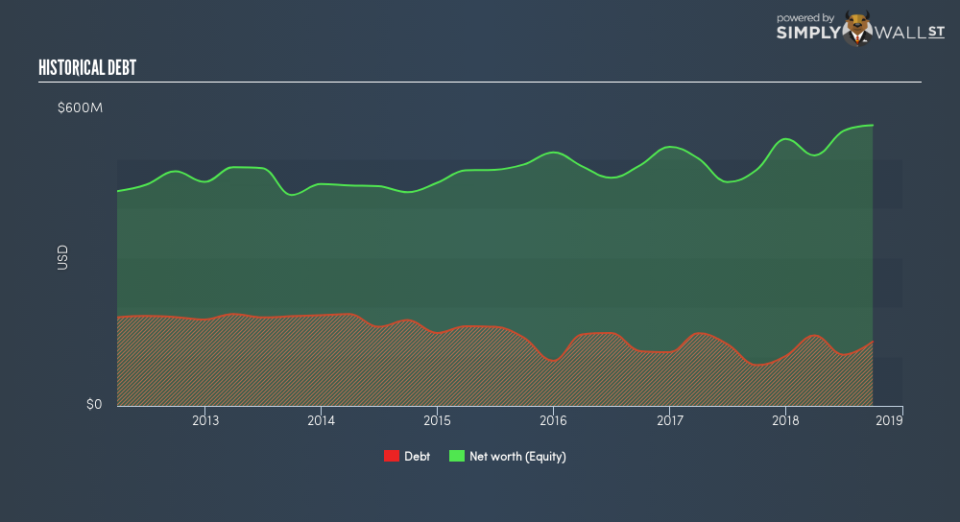Is Chemed Corporation’s (NYSE:CHE) Liquidity Good Enough?

Want to participate in a short research study? Help shape the future of investing tools and receive a $20 prize!
Small-caps and large-caps are wildly popular among investors; however, mid-cap stocks, such as Chemed Corporation (NYSE:CHE) with a market-capitalization of US$5.0b, rarely draw their attention. However, history shows that overlooked mid-cap companies have performed better on a risk-adjusted manner than the smaller and larger segment of the market. Today we will look at CHE’s financial liquidity and debt levels, which are strong indicators for whether the company can weather economic downturns or fund strategic acquisitions for future growth. Don’t forget that this is a general and concentrated examination of Chemed’s financial health, so you should conduct further analysis into CHE here.
Check out our latest analysis for Chemed
Does CHE produce enough cash relative to debt?
Over the past year, CHE has ramped up its debt from US$83m to US$130m – this includes long-term debt. With this increase in debt, CHE’s cash and short-term investments stands at US$67m , ready to deploy into the business. Moreover, CHE has generated cash from operations of US$202m in the last twelve months, leading to an operating cash to total debt ratio of 155%, signalling that CHE’s debt is appropriately covered by operating cash. This ratio can also be a sign of operational efficiency as an alternative to return on assets. In CHE’s case, it is able to generate 1.55x cash from its debt capital.
Can CHE pay its short-term liabilities?
With current liabilities at US$180m, the company has been able to meet these obligations given the level of current assets of US$206m, with a current ratio of 1.14x. Usually, for Healthcare companies, this is a suitable ratio as there’s enough of a cash buffer without holding too much capital in low return investments.
Can CHE service its debt comfortably?
CHE’s level of debt is appropriate relative to its total equity, at 23%. This range is considered safe as CHE is not taking on too much debt obligation, which can be restrictive and risky for equity-holders. We can test if CHE’s debt levels are sustainable by measuring interest payments against earnings of a company. Ideally, earnings before interest and tax (EBIT) should cover net interest by at least three times. For CHE, the ratio of 54.58x suggests that interest is comfortably covered, which means that lenders may be inclined to lend more money to the company, as it is seen as safe in terms of payback.
Next Steps:
CHE has demonstrated its ability to generate sufficient levels of cash flow, while its debt hovers at an appropriate level. Furthermore, the company exhibits proper management of current assets and upcoming liabilities. I admit this is a fairly basic analysis for CHE’s financial health. Other important fundamentals need to be considered alongside. I suggest you continue to research Chemed to get a better picture of the stock by looking at:
Future Outlook: What are well-informed industry analysts predicting for CHE’s future growth? Take a look at our free research report of analyst consensus for CHE’s outlook.
Valuation: What is CHE worth today? Is the stock undervalued, even when its growth outlook is factored into its intrinsic value? The intrinsic value infographic in our free research report helps visualize whether CHE is currently mispriced by the market.
Other High-Performing Stocks: Are there other stocks that provide better prospects with proven track records? Explore our free list of these great stocks here.
We aim to bring you long-term focused research analysis driven by fundamental data. Note that our analysis may not factor in the latest price-sensitive company announcements or qualitative material.
If you spot an error that warrants correction, please contact the editor at editorial-team@simplywallst.com. This article by Simply Wall St is general in nature. It does not constitute a recommendation to buy or sell any stock, and does not take account of your objectives, or your financial situation. Simply Wall St has no position in the stocks mentioned. Thank you for reading.

